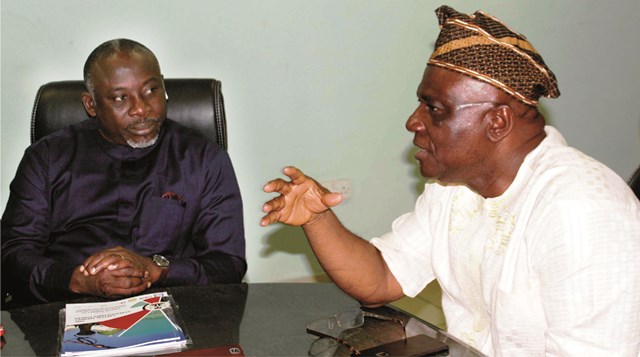Business
Nigerian Bourse Investors Lose N2.49 trn In Seven Months

Investors on the Nigerian Stock Exchange (NSE) lost N2.49 trillion or 15.64 per cent between January and July, a development experts attribute to the political uncertainty in the country.
The financial experts, who spoke to our source our source said the political uncertainty had taken its toll on the bourse.
Data obtained by NAN from the exchange showed that the market capitalisation which closed at N15.895 trillion in January declined to N13.409 trillion in July.
Similarly, the All-Share Index lost 7,325.87 points or 16.52 per cent during the period under review, closing at 37,017.78 in July compared with 44,343.65 in January.
Head of Banking and Finance Department, Nasarawa State University Prof. Uche Uwaleke, , said that the performance of the market was dismal and eroded the growth recorded in January.
Uwaleke said the market had remained bearish despite the oil price recovery, stable exchange rate, retreating inflation and even improved company fundamentals.
He however attributed the development to heightening political tension, insecurity from herdsmen and economic uncertainties from the delay in budget implementation.
Uwaleke added that the spike in interest rates in the United States of America and to some extent the US-China trade war combined to swing the attention of foreign investors to US markets.
Professor of Economics, Olabisi Onabanjo University Ago-Iwoye, Ogun,Prof. Sheriffdeen Tella, said the bearish trend was caused by movements of interest rates in the United States which resulted in withdrawal of money from the market by foreign investors.
“The seeming sustainability of the downward trend is caused by fear of local investors that they might be losing large amounts of money if they don’t sell off their securities now,” Tella said.
Former President, Institute of Bankers of Nigeria (CIBN), Mazi Okechukwu Unegbu, said security issues and the social environment were responsible for the negative sentiments in the capital market.
Unegbu said foreign investors had pulled out their funds from the nation’s market, especially portfolio investors.
He said the real investment that impact positively on the economy was foreign direct investment in the productive sector, not ‘hot money investment’ in the stock market.
Unegbu said government must encourage local investors to invest in the market by creating an enabling environment.
He added that politicians should stop their daily political altercations in the media, which he said was fuelling fears among investors.
The Managing Director, APT Securities and Funds Ltd.Malam Garba Kurfi, said the performance of the capital market had remained negative from February to date.
He said the market for about seven weeks now had experienced a loss of one per cent per a week or even more.
Kurfi attributed the trend to the exit of foreign investors and the institutional investors, and that the market witnessed a lot of sell pressure.
He also said the Pension Funds Administration failed to invest due to political risks.
“We hope to see revised trends probably after primary elections when the foreign investors are likely to review the prospective candidates and take decision,” Kurfi said.
However, NAN reports that volume of shares traded between January and July rose by 56.16 per cent with an exchange of 82.58 billion shares valued at N871.71 billion in 742,014 deals.
This was in contrast with a turnover of 52.88 billion shares worth N565.83 billion transacted in 539,315 in the comparative period of 2017.
Business
KALCCIMA PROMISES KALABARI ECONOMIC GROWTH, INAUGURATES NEW EXECUTIVES

Business
NCDMB Begins Nigerian Content Research, Innovation and Technology Challenge

Business
Ikuru Town Issues Start-Up Grants, Packs To Skill Acquisition Graduands

-

 Sports3 days ago
Sports3 days agoAFCON ’25: Osimhen Not Worried By Yekini Comparison, Pressure
-

 Politics3 days ago
Politics3 days agoYou Have No Power To Drop Me, Ekiti PDP Candidate Tells INEC
-

 Sports3 days ago
Sports3 days agoOgoni Nation Cup : Coach Praise Players In spite 2-0 Loss
-

 Sports3 days ago
Sports3 days agoRemo Stars set for Ikenne return
-

 Sports3 days ago
Sports3 days agoChelsea Set To Part Ways With Maresca?
-

 Sports3 days ago
Sports3 days agoSoname Calls For NPFL referees demotion
-

 Sports3 days ago
Sports3 days agoTackling age falsification among athletes In Nigeria
-

 Business3 days ago
Business3 days agoKALCCIMA PROMISES KALABARI ECONOMIC GROWTH, INAUGURATES NEW EXECUTIVES





